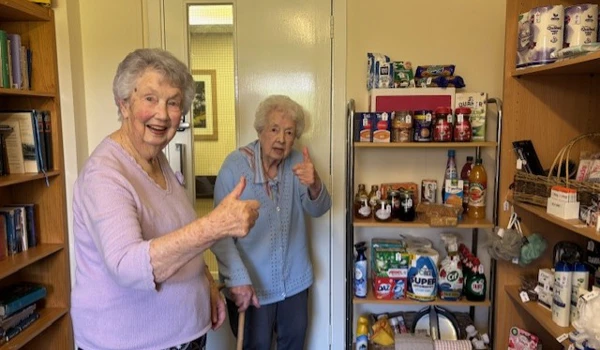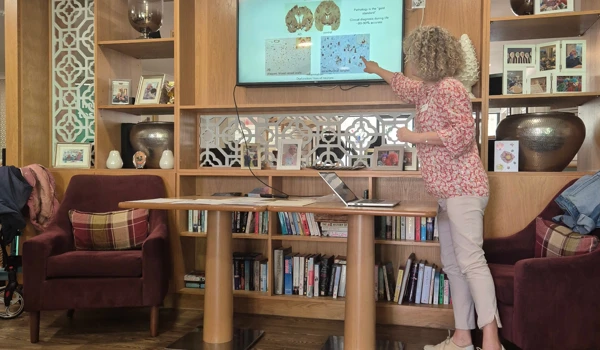Improve Your Wellbeing in Later Life
Older people are also more likely to experience grief because of significant losses such as the death of family members, friends or even a spouse.
They may also experience social isolation and loneliness, especially if they live alone or have limited mobility. If you find yourself or a loved one in such a position, you can take steps to reduce depression and anxiety.
1. Seek Help and Support
Older people are more resistant to seeking help, especially professional help because they are afraid of the social stigma surrounding mental health issues. This social stigma is a lot less today than it was in the past, but it also differs from one region to the next.
This is where online help can become a lifeline as it offers complete anonymity so that you can get the help you need without having to worry about people “finding out”. You can check out a comparison of the best free or affordable online therapy to figure out which platform is best for you.
Some platforms even have volunteer listeners that you can talk to for free or if you are uncomfortable with talking, you can connect with other people on forum boards. If you are looking for affordable or free therapy from a professional, you can check if there are any organisations in your area that can help you.
Sometimes it’s easier to ask for support from people you don’t know but it’s important to take that first step – the regular social interaction will help to boost your mood and make it easier to rebuild social connections with your family, friends and community.
2. Practice Mindfulness and Meditation
Mindfulness practices such as meditation and deep breathing exercises can help older adults manage stress, anxiety, and depression. These techniques help you become aware of your thoughts and emotions which will help you identify negative habitual thought patterns and avoid rumination.
Mindfulness and meditation also allow you to observe your emotions without immediately reacting to them which improves emotional regulation. The more you practice these techniques, the more self-control you will gain which will help you be resilient and resourceful in the face of challenging situations.
3. Exercise Daily
When you’re feeling low, the last thing you want to do is exercise but it’s definitely the best thing that you can do! Research shows that physical exercise lowers stress hormones such as cortisol while simultaneously boosting the production of endorphins which are also called “happy hormones” because they are natural mood lifters.
A study on the effects of exercise in reducing depression in older adults found that 16 weeks of exercise was equally effective in reducing depression as antidepressant medication.
4. Follow a Regular Daily Routine
Creating and following a structured daily routine can provide a sense of stability and predictability, which is important for older people experiencing depression or anxiety. If you are not used to a daily routine, don’t try to make a lot of changes at one time because you will find it tough to adjust.
Instead, gradually introduce routine into your life by establishing regular sleep times. Once you are used to this, you can schedule your other activities including your meal and nap times as this stability will help to improve your overall mental health.
5. Cultivate Healthy Sleep Habits
Inadequate sleep or poor sleep quality can exacerbate depression and anxiety. As we age, there's a natural shift in sleep patterns, including reduced time spent in deep sleep stages and more frequent awakenings during the night. This can lead to fragmented sleep which can cause fatigue and low mood. Simple sleep habits like setting a consistent sleep schedule and following daily bedtime rituals will go a long way in improving sleep.
6. Engage in hobbies
Hobbies help to improve mindfulness and give us a sense of satisfaction. This helps to improve mood and reduce depression and anxiety. Choose hobbies that you find interesting and that match your energy levels whether that is gardening or painting.
Hobbies also require a certain amount of mental focus which will help you move away from negative thoughts and rumination. If you engage in hobbies regularly, you will notice that you automatically spend less time in rumination and you feel less anxious.
7. Be Good to Yourself
We expect a lot from ourselves which is why we get frustrated when we are unable to live up to those expectations. We are dismissive of our achievements and instead focus on our failures which often leads to anxiety and depression. Be gentle, kind and encouraging in your self-talk, especially during difficult times.
When you start to get frustrated or angry with yourself, imagine how you would react if a loved one was in the same situation and treat yourself with the same level of care and understanding. Self-care, self-acceptance and self-validation are essential for good mental health.
Read more Articles & News

22/08/2025
“Meaningful connections” with care home residents inspire hundreds of schoolgirls to hold fundraising dance competition
Withington Girls' School students raised nearly £2,000 for Downing House dementia care home and Family Fund with their 'Dancing Through the Decades' competition. Read more about their fun event.
Read More
22/08/2025
Open (almost) all hours
Residents at Abbeyfield House in Brecon are enjoying a new on-site honesty shop. Stocked with everyday essentials and treats, the shop helps residents maintain their independence and makes life easier for everyone.
Read More
22/08/2025
Speedwell Court and Westfield House hold events to mark Dementia Awareness Week
Learn how two care homes celebrated Dementia Action Week with a party and bake-off fundraiser at Westfield House and an expert-led awareness day at Speedwell Court.
Read More